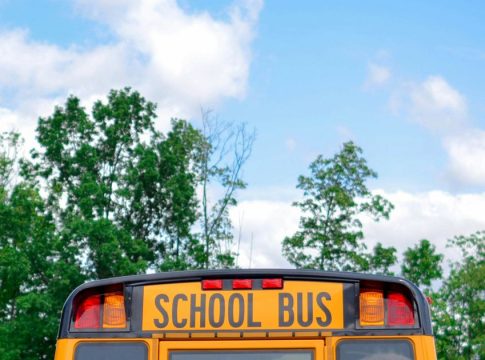Tasty Transformations: How Wake County Schools Are Tackling Food Waste and Hunger
In a delightful blend of sustainability and community care, a groundbreaking pilot program in Wake County schools is turning food waste into treasure. Imagine freshly uneaten fruits and snacks being rescued from the clutches of the dumpster, only to find a new home in the hands (and bellies) of hungry students. Meet the SHARE Program: Stop Hunger And Restore Earth—an initiative that’s making cafeteria waste glorious again!
The Scoop on SHARE
Launched in March by the Wake County Public School System in collaboration with the fabulous Cary-based nonprofit Toward Zero Waste, the SHARE program sprouted in eight elementary schools. The concept? Simple yet impactful. Carts are wheeled into cafeterias during breakfast and lunch, enticing students to donate any uneaten items from their trays. Federal guidelines may require students to grab certain foods, like vibrant fruits, for their meals, but they don’t always have to munch them down.
How It Works
After the plates clear, dedicated school staff spring into action—collecting fruits, packaged snacks like muffins and granola bars, and even nutritious nuggets like hummus cups. These leftovers are whisked away to cool storage spots within the school, ensuring access for anyone who needs a bite later in the day.
- Student Access: Hungry kiddos can snag these goodies anytime—a boost during snack breaks, after school, or even if they missed breakfast.
- End-of-Day Treats: Some schools put the cart on display as the final bell rings, and believe it or not, it’s often emptied in a flash!
A Taste for Conservation
STAFF IMPACT
Leaders in this sweet initiative have highlighted more than just food recovery. They’re integrating valuable lessons into daily school life—like conservation, sharing, and even leadership. Students have taken an interest in how to enhance the program and are eager to see a wider range of rescued goodies.
What’s on the Menu?
While fresh fruits like pears and precut oranges are on the wish list, right now schools are feasting on:
- Leftover muffins
- Granola bars
- Fun snacks like juice or hummus cups
- Condiments and utensils
Pro tip: Be warned—those cauliflower packets don’t last long! As one magnet coordinator noted, “They’re gone before the day even ends!”
Digging Into the Numbers
The results are jaw-dropping! With an impressive 41 items donated each day at every participating school, that’s a staggering over 7,000 items saved throughout the school year. Most encouragingly, schools report that they rarely see wasted food from this marvelous initiative.
Next year, the SHARE program will expand its reach, helping even more students in six additional elementary schools and four middle schools.
Join the Movement
So, how can you make a difference? Whether you’re a parent, teacher, or community member, consider advocating for similar programs at your local schools. The world of food recovery is not just about reducing waste; it’s about nourishing young minds and bodies while fostering a culture of sustainability and sharing.
At Wake County schools, they’ve proven that a little creativity can transform what many see as wasteland into a thriving landscape of opportunity for hungry students. Let’s all take a page from their delightful playbook—because every bite counts!

Covers wellness, nutrition, mental health, and daily life tips.
Bio: Talia brings a background in health journalism and holistic living to help readers live better, one tip at a time.

